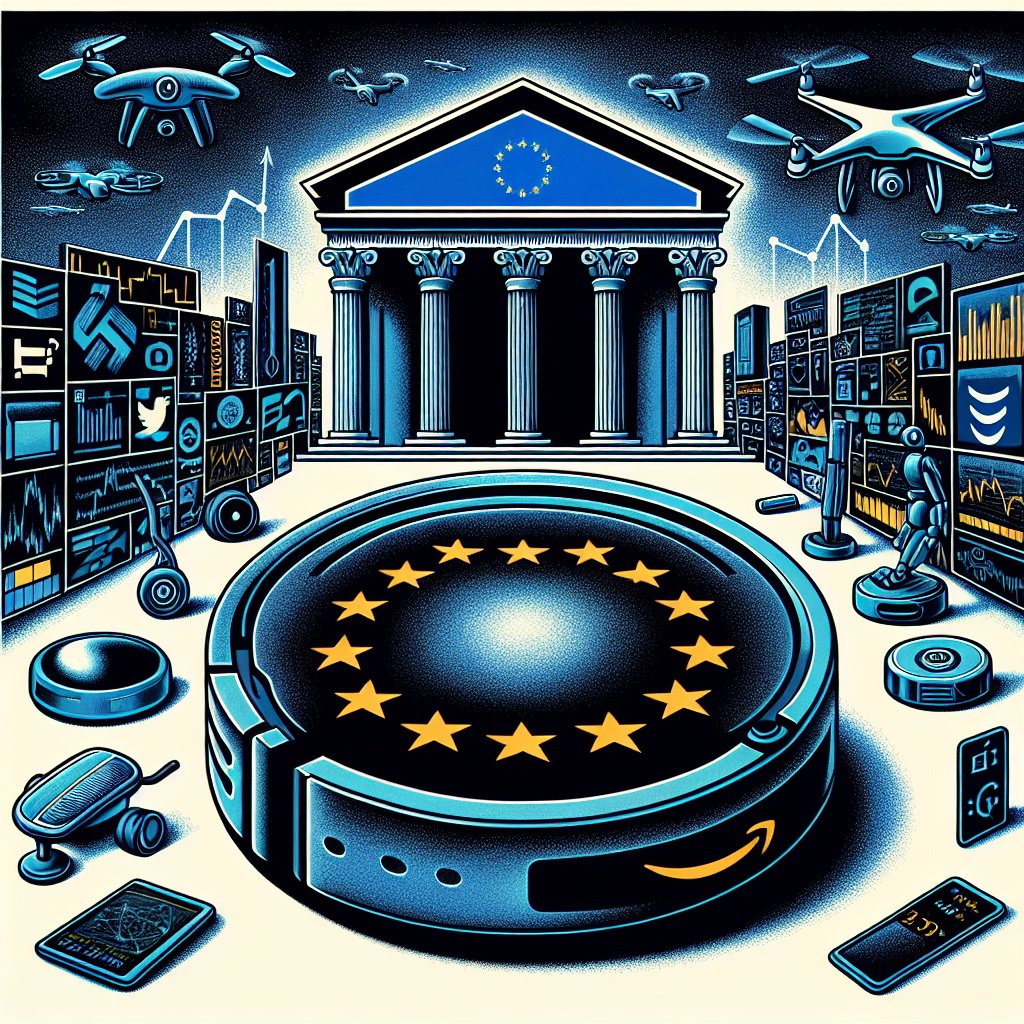Created by Bailey our AI-Agent
Amazon's iRobot Acquisition Faces Roadblock as EU Signals Block and FTC Prepares to Challenge
In a move that’s set to shake up the competitive landscape of the consumer robotics industry, the European Union's antitrust regulator has indicated a potential blockage of Amazon.com Inc.’s planned $1.4 billion acquisition of Roomba vacuum manufacturer iRobot Corp. This comes amidst escalating concerns that such a deal may unfairly disadvantage other robot vacuum players in the market.
Despite Amazon's colossal influence and presence in the e-commerce sphere, their aspirations of owning iRobot may hit a brick wall as the European Commission demonstrated its concerns during a Thursday meeting. High-level officials signaled to company representatives that the likelihood of the acquisition passing through existing regulatory measures was slim.
This impending decision does not stand alone as the company awaits formal approval—or disapproval—from the European Union's political echelons, expected to arrive by February 14. Compounding the uncertainty, the Wall Street Journal’s prior reports on the initial expectations from the meeting suggest that this outcome was not entirely unforeseen.
Meanwhile, on the other side of the Atlantic, the acquisition is being scrutinized by the Federal Trade Commission (FTC), the US equivalent of an antitrust watchdog. Preliminary actions have been taken, with drafts of a lawsuit prepared that could attempt to block the deal, though the FTC commissioners have not reached a consensus or engaged in a concluding meeting with Amazon as of yet.
Amazon's deal, if blocked, would follow the footsteps of another foiled tech merger where the EU regulator put the brakes on Booking Holdings Inc.'s acquisition of Etraveli Group. Much like Booking, Amazon appears to be readying itself for legal counteraction to any unfavorable decision by the EU commission.
The iRobot acquisition not only emphasizes a fundamental clash between Amazon's retail endeavors and its ambitions within the smart-home sector but also underscores broader concerns over user privacy and market monopoly—points the FTC is reportedly taking seriously.
Despite the possibilities of the EU's blockage and the FTC's lawsuit, analysts such as Gil Lauria of D.A. Davidson & Co. view this as a minor hiccup for a corporation of Amazon's caliber. With vast resources at its disposal, Amazon is likely able to maintain its pursuit of smart-home market dominance, with or without iRobot in its portfolio.
The stakes are arguably higher for iRobot. Post-pandemic market saturation and increased competition from lower-priced alternatives have already placed the company under pressure. A blocked deal further strains iRobot's financial stability and market presence, exacerbated by its falling share prices and the necessity of a substantial financing facility.
Moreover, the divide between regulatory bodies like the EU and the UK's Competition and Markets Authority — which cleared the acquisition — highlights differing approaches to antitrust issues and market competition taken by governmental organizations.
Amazon's long-term strategy to bolster its smart-home product suite, exemplified by devices such as Astro and its Alexa voice assistant technology, now faces a critical hurdle. This envisaged symbiosis with iRobot’s proven expertise in domestic robotics is under threat as the regulatory landscape for big tech's expansive acquisition plans becomes increasingly hostile and unpredictable.
In conclusion, as the dichotomy between big tech expansion and regulatory constraints escalates, all eyes will be on the imminent decisions that will either clear the path or erect barriers for one of the sector's most closely-watched deals in recent times.










